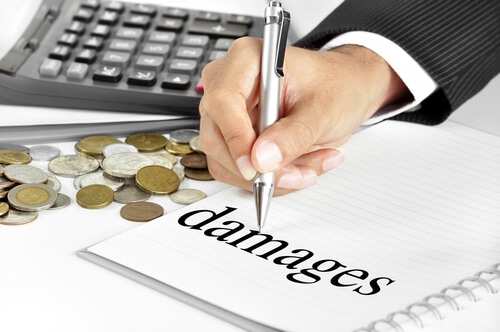After an accident, you may be wondering how to move forward. Filing a personal injury claim can help. This is because successful personal injury cases yield damages. “Damages” is an interesting legal term because it can refer not only to the injuries and losses you suffered due to your accident but also the compensation you recover to account for them.
In terms of compensation, damages can be broken down into both “economic” and “non-economic” damages, collectively called “compensatory damages.”
Economic Damages
Economic damages are designed to compensate you for your measurable losses and accident-associated expenses, such as:
- Present and future medical bills
- Doctor’s appointments
- Prescriptions
- Transportation
- Physical therapy and rehabilitation
- Counseling and mental health services
- Missed wages
- Lost future income
- Property damage
- Funerary and burial expenses
- And more
Typically, economic damages can be paired with bills, receipts from out-of-pocket expenses, or missing paychecks. In some cases, your attorney will use existing documentation to help you estimate the financial effects your accident will have on you moving forward.
Non-Economic Damages
Non-economic damages, on the other hand, are meant to compensate you for less tangible losses, like:
- Pain and suffering
- Mental anguish
- Loss of enjoyment of life
- Loss of companionship
- Disability or disfigurement
- And more
No one can truly measure the impact an accident has on your life, but we can ascribe value to some of the ways your injury affects you. These damages can be subjective, so having our skilled attorneys on your side can help you make fair appraisals, estimates, and demands.
Punitive Damages
If your case involved recklessness, criminal behavior, or extreme negligence, you may also be entitled to punitive damages. Also called exemplary damages, this compensation is designed to punish the wrongdoer and discourage similar behavior in the future. In Ohio, punitive damages cannot exceed twice the amount of compensatory damages (the term for combined economic and non-economic damages) or 10% of the defendant’s net worth (whichever is higher).
Unlike some other states, in which punitive damages go into a special fund, the court awards punitive damages to the plaintiff (or the person filing the lawsuit). In this way, punitive damages can provide you with additional financial comfort and allow you to move forward from your accident and injuries with a sense of justice and economic security.
What Is My Case Worth?
We cannot estimate what your case is worth without knowing all the details. If you come in for a free initial consultation, however, we can help you understand your legal rights and manage your expectations.
When you choose Plymale & Dingus, you put over 80 years of collective legal experience on your side. You also get a legal team that will fight for your rights and pursue maximum compensation on your behalf.
We have recovered millions of dollars for our clients, and we want to recover for you, too.

